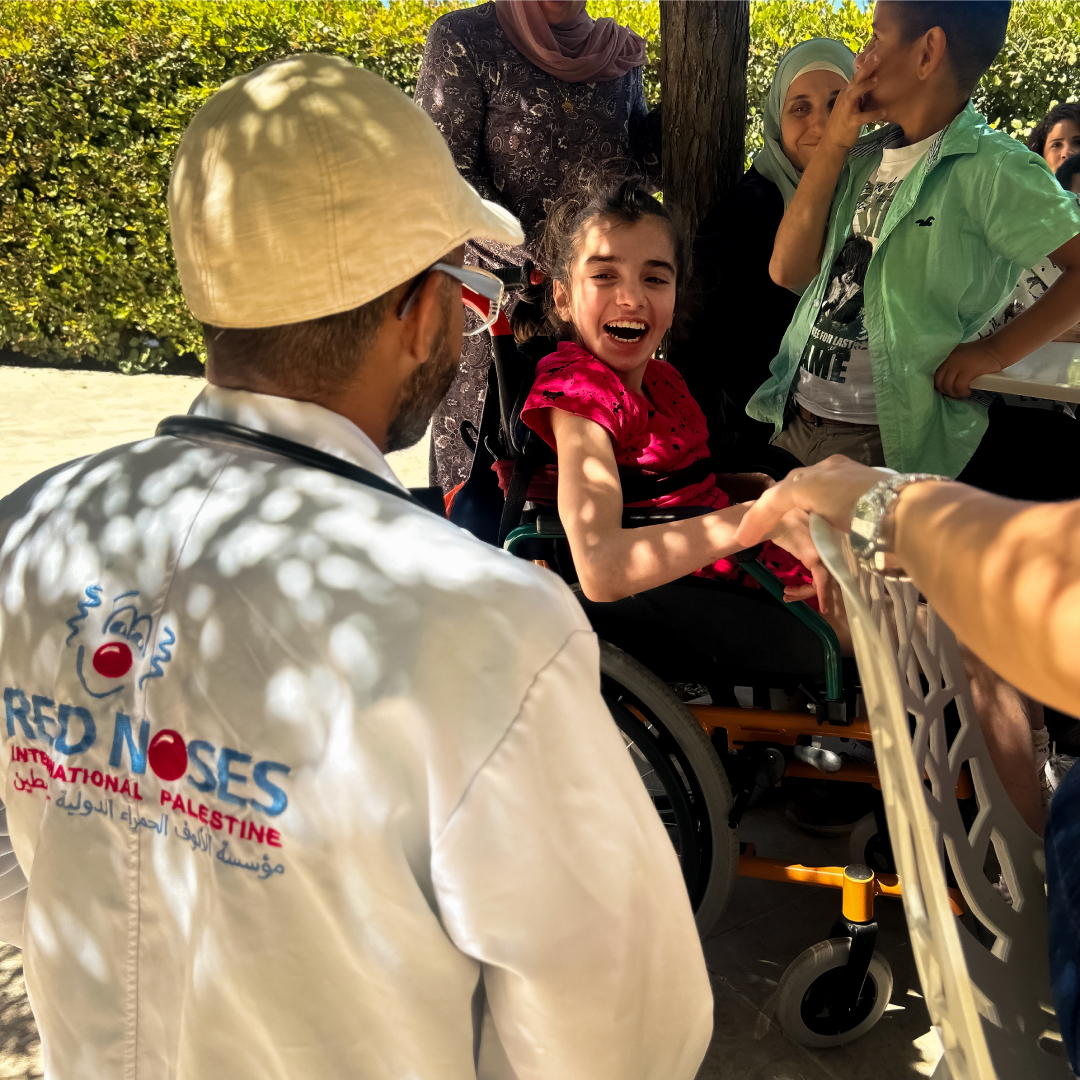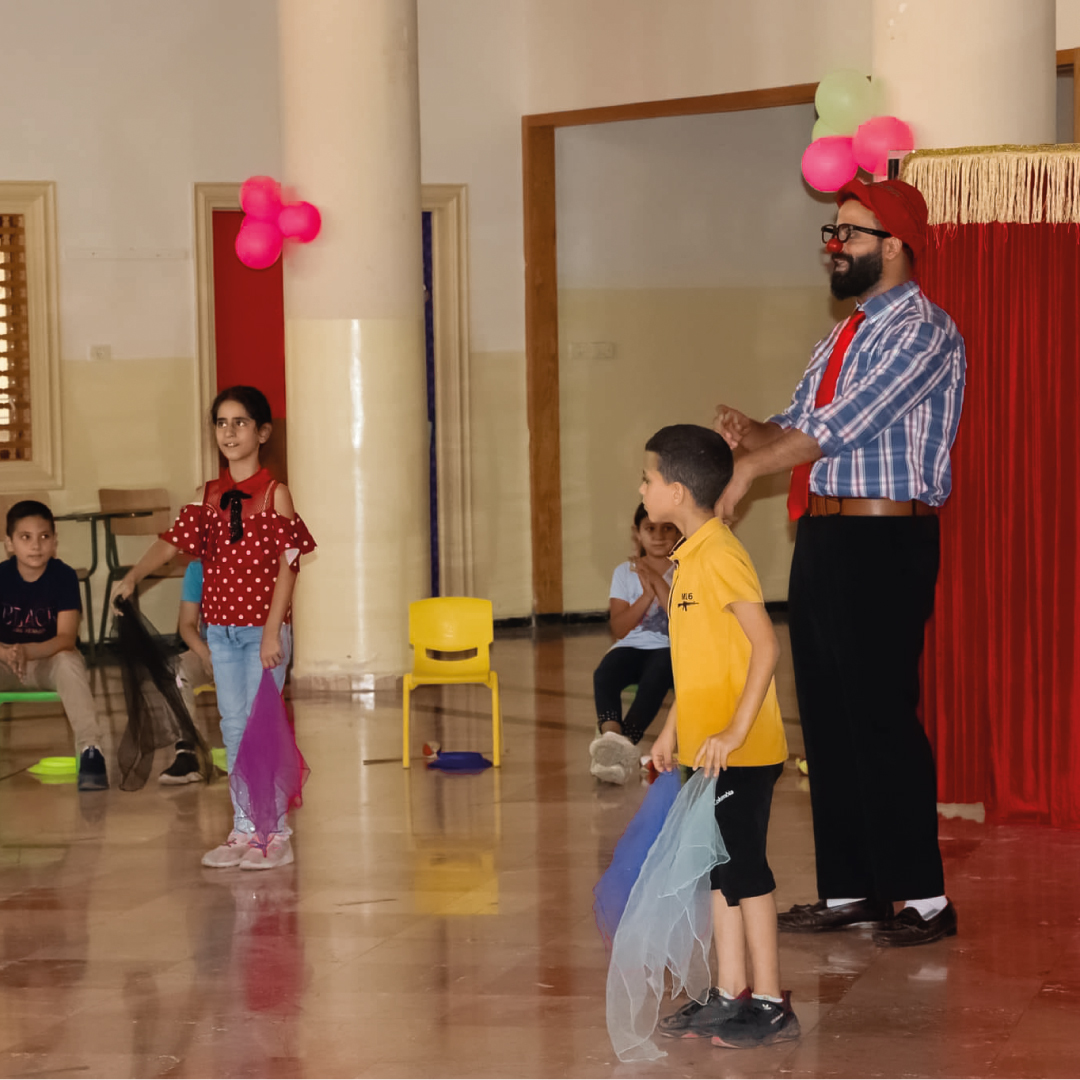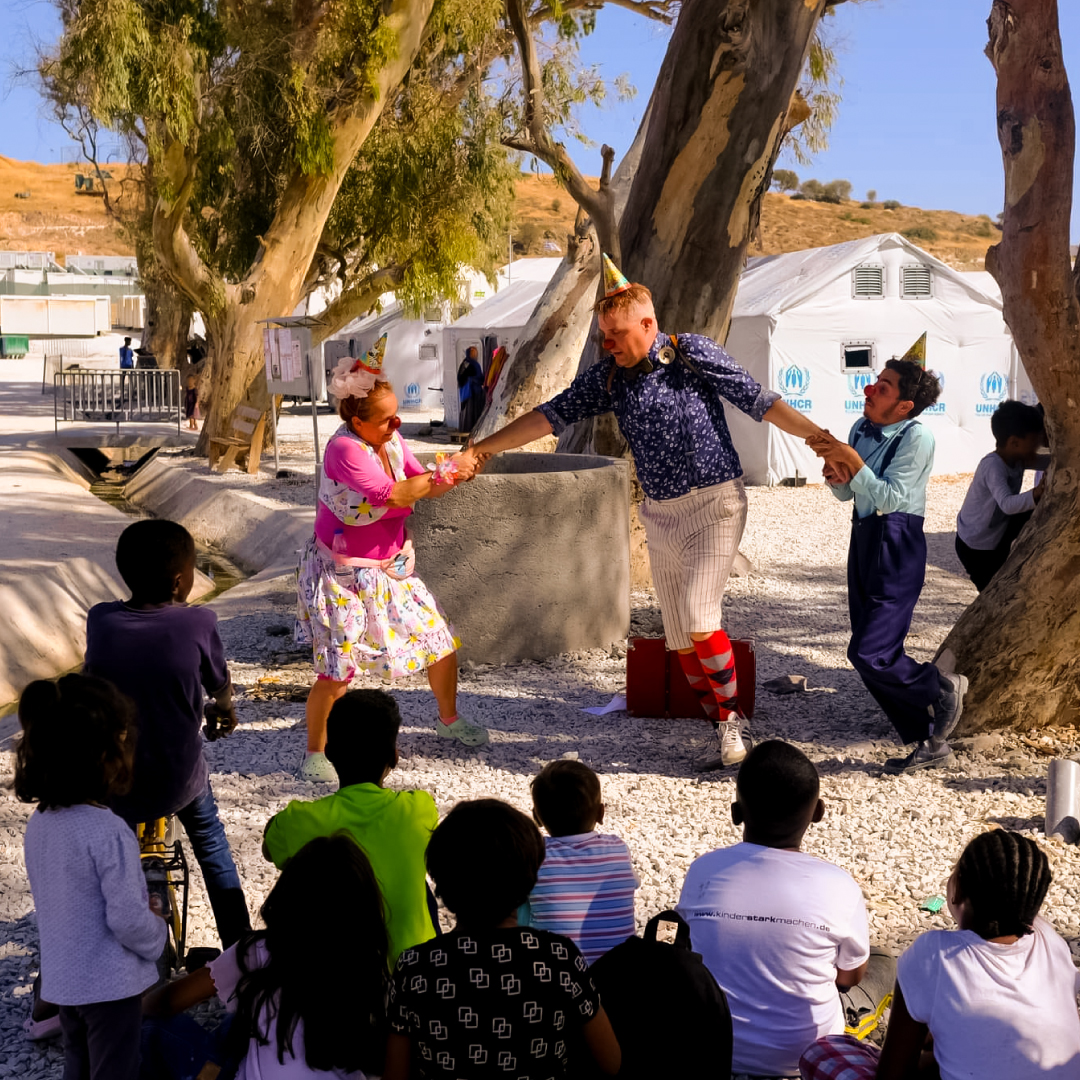For children

BEDSIDE VISITS
Hospital stays, surgeries and tests are connected with fear, insecurity, and boredom - especially for children. Young patients often do not know nor understand what is happening to them and they are constantly anxious. Children experience sadness and loneliness through their treatment process in hospitals. Emotional needs and individual interactions are usually neglected in the hospital's daily routine.
As soon as RED NOSES Palestine Healthcare Clowns appear in the paediatric ward, the air fills up with fun. Children become carefree and happy as they are taken to a world full of jokes, magic and music. RED NOSES Healthcare Clowns make fear and pain quickly be forgotten as they give comfort and hope, whilst bringing a new zest for life and transferring positive energy to hospital rooms.
Annually, RNPS is bringing joy and laughter to more than 15,000 sick children in hospitals, and to more than 20,000 parents and medical staff in the following hospitals:
- Augusta Victoria Hospital , Jerusalem
- Makassed Hospital, Jerusalem
- Hebron Governmental Hospital (Alia), Hebron
- The Huda Al Masri Cancer Paediatric Department, Beit Jala
- The Paediatric Ward at Al-Hussein Governmental Hospital , Beit Jala
- Palestine Medical Complex, Ramallah
- Rafidia Surgical Hospital, Nablus
- An- Najah National University Hospital, Nablus
- Thabit Thabit Governmental Hospital, Tulkarm
- Khalil Suleiman Hospital (Jenin Governmental Hospital), Jenin
- Darwish Nazzal Hospital, Qalqilya
- Tubas Turkish Governmental Hospital, Tubas
- Al-Ahli Hospital, Hebron

CHILDREN IN REHABILITATION CENETRS
Individuals who have suffered from a serious accident must work hard to find their way back to a normal life where they often experience very desperate moments. Movements or processes previously taken for granted must be re-learnt in arduous, painful and lengthy therapy. Many patients are confronted with the worst consequences of accidents such as spinal cord injury, traumatic brain injury and amputation. Also, they must deal with the separation from their familiar social environment for many months.
With RNPS Healthcare Clowns visits to rehabilitation centres, our trained professional clowns provide patients the psychosocial support needed during their therapeutic phase by applying particular methods and techniques studied in the RED NOSES Curriculum. In response, these techniques motivate the patient to follow and practice required exercises by the therapist and to accomplish them with strength and determination without feeling defeated or bored.
RED NOSES Palestine Healthcare Clowns make regular visits at The Jerusalem Princess Basma Center in Jerusalem.

INTENSIVE SMILE PROGRAMME
Waiting to undergo a medical procedure in a hospital can cause children to feel helpless and passive, losing their self-confidence. Children may also suffer from stress, fear, boredom and anxiety about the upcoming procedure. In this state, children may become less compliant with the medical procedure making it more difficult for themselves and the medical staff too.
In the long-term, the trauma of the medical procedure can lower emotional and physical well-being, while increasing aggression and a sense of isolation. The parents may be overwhelmed by their child’s emotional needs, as they are dealing with their own stress and responsibilities. Medical and humanitarian staff may feel stressed and detached from their emotions, and they also may experience feelings of helplessness and/or burn-out.
Clowns mainly perform without a clown partner in order to be more focused on the child. Moreover, the clown develops a strong working relationship and becomes therefore a partner to the doctors and other staff involved in the treatment.
By making the environment more supportive, Intensive Smile contributes to:
- More access to humorous play for children
- A positive change in the medical environment through its impact on care providers
RED NOSES Palestine Healthcare Clowns appear in Surgical Departments to make the environment more supportive in:
- Augusta Victoria Hospital - Jerusalem
- Al-Hussein Governmental Hospital - Beit Jala

CIRCUS WORKSHOPS
The Circus Workshops are implemented in marginalised areas to give a positive touch and to enhance the lives of young individuals in these regions.
Two of our healthcare clowns provide a 4 day-long workshop to train marginalised children and prepare them to perform in front of an audience mainly consisting of the childrens' parents where an invitation is sent to attend the final performance to see their child as the Star of the Show.
During the training journey, children come across and learn about the world of arts and its dimensions, realising abilities and talents they might have had, but have never been given an actual opportunity to discover. Thus, Circus Workshops offer children an accurate experience to conclude that through practicing continuously with determination, the desired result can be obtained. It also teaches children teamwork, discipline, patience, confidence in standing on stage and to feel proud of doing something significant. Moreover, it teaches them to express their feelings through arts and to reinforce resilience within their social circle.

CRISIS RESPONSE PROGRAMME
Especially in crisis situations, RED NOSES can respond to the immense need for psychosocial support with its innovative programme, Crisis Response. In multi-week missions, clowns support children and their families to develop strategies to cope with their challenging situation. These are people who have lost almost everything, who have witnessed and survived conflicts or natural disasters, who were forced to flee, and who live in dire and stressful situations.
With our artistic and interactive clown interventions, the children are given the possibility to express their feelings in a playful manner. The clowns can trigger a shift of focus, concentrating on the positive, the strength and the abilities of the children. The reconnection with positive feelings helps them to regain resilience and hope.

